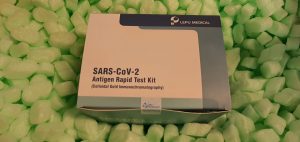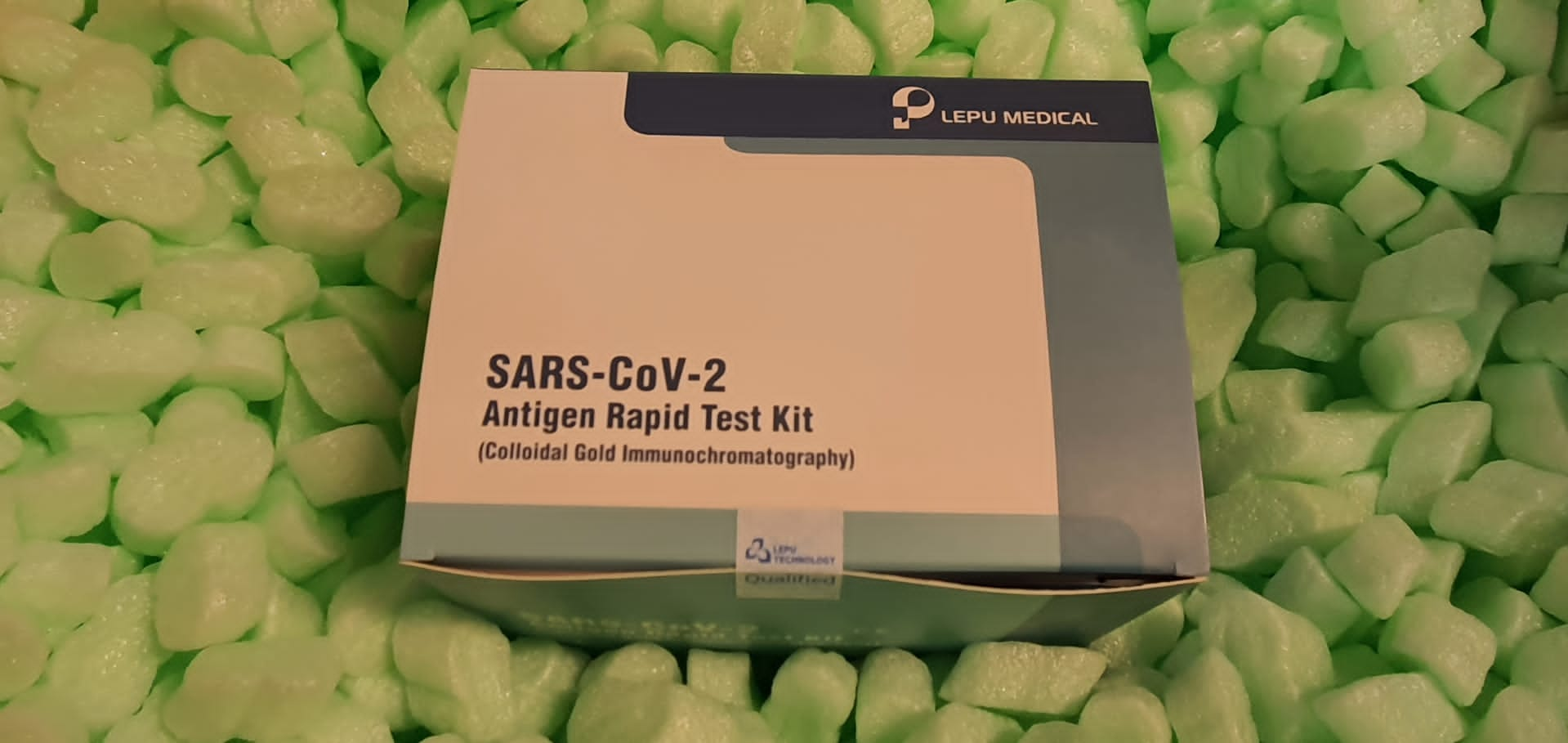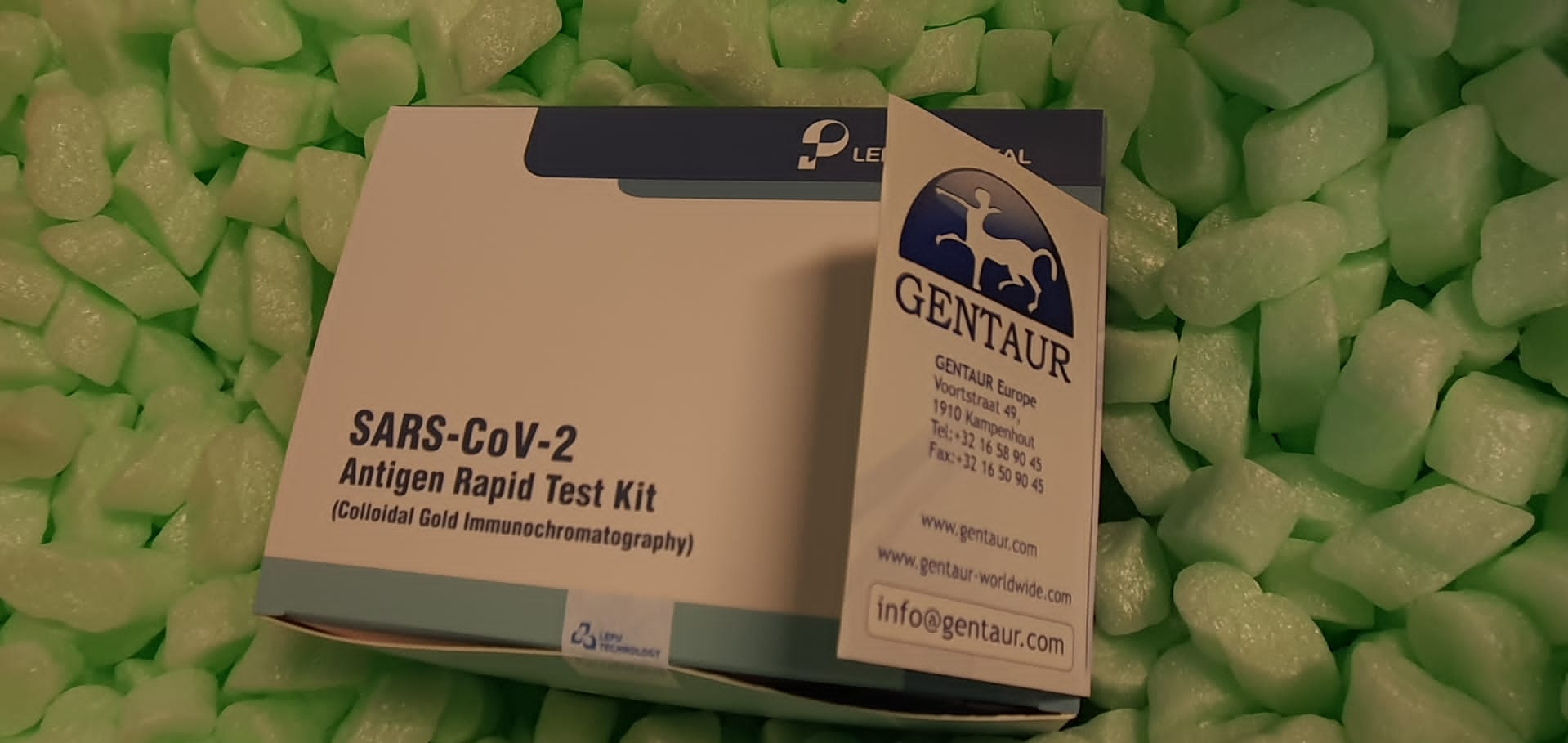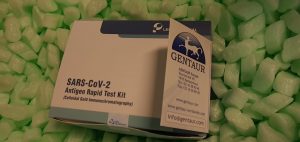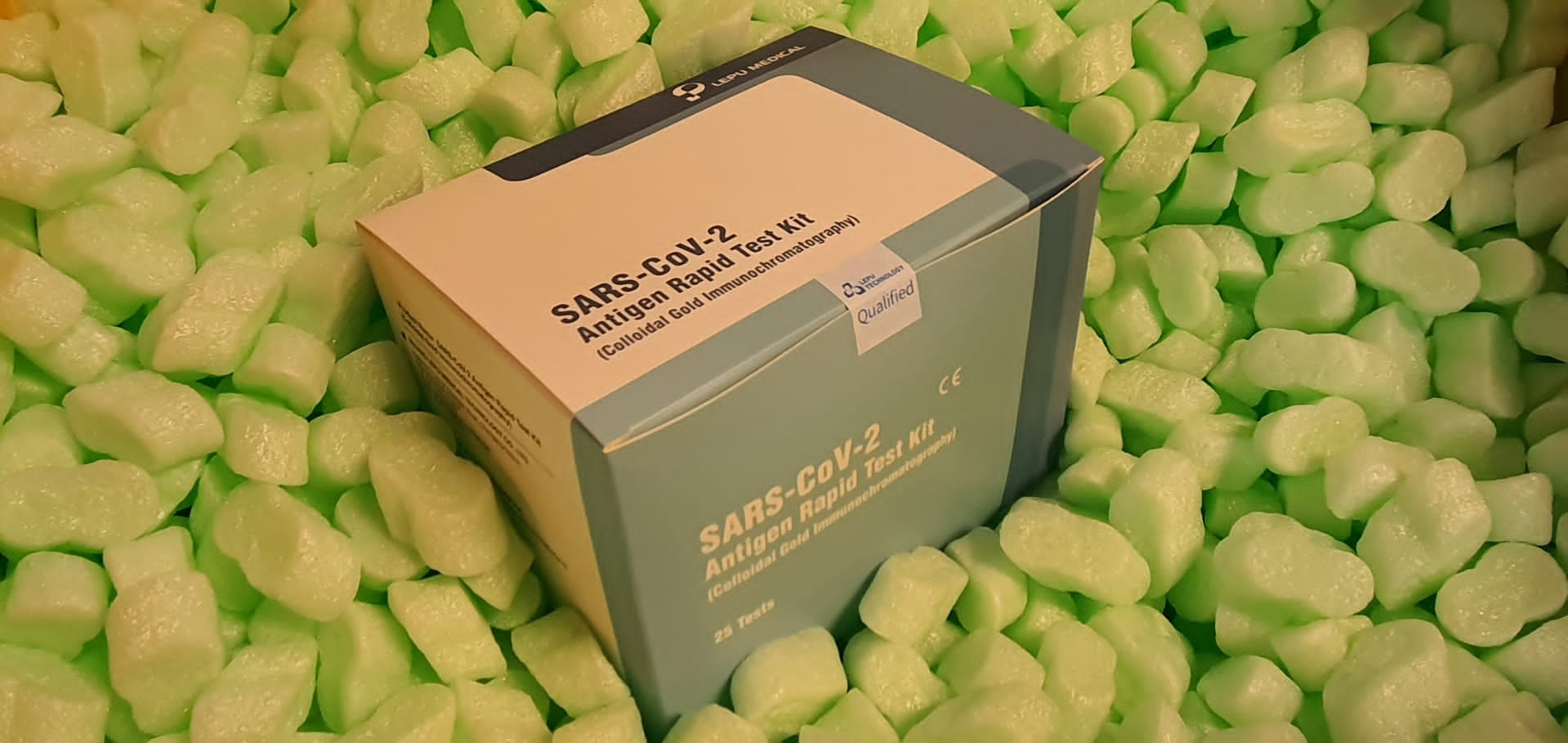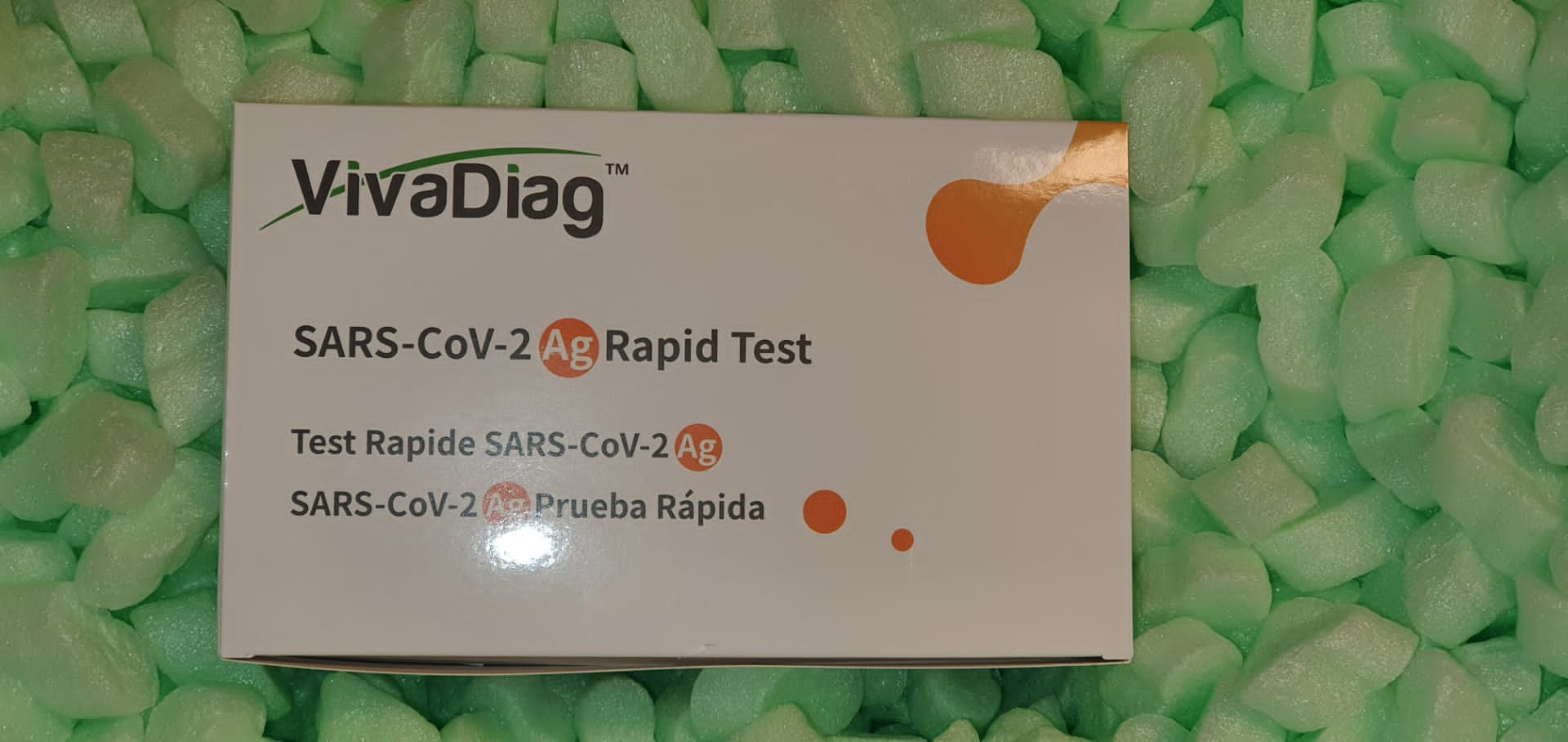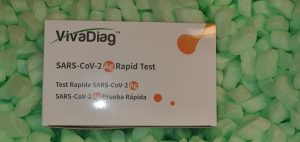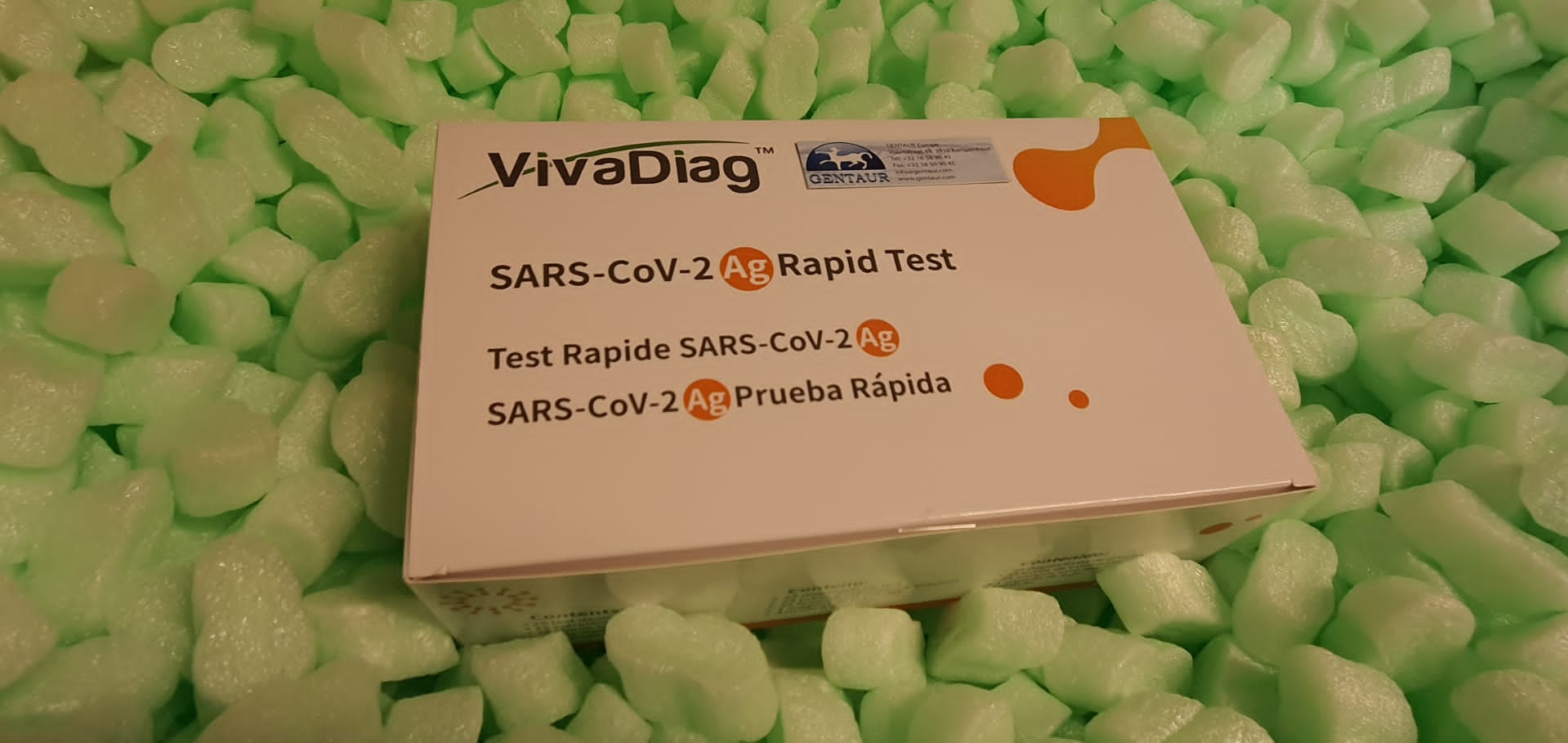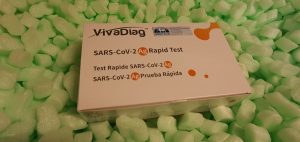Caenorhabditis elegans is an instrumental analysis mannequin used to advance our data in areas together with growth, metabolism, and getting old. However, analysis on metabolism and/or different measures of well being/getting old are confounded by the nematode’s food source in the lab, reside E. coli micro organism. Commonly used therapies, together with ultraviolet irradiation and antibiotics, are profitable in stopping bacterial replication, however the micro organism can stay metabolically energetic. The goal of this examine is to develop a metabolically inactive food source for the worms that may enable us to attenuate the confounding results of bacterial metabolism on worm metabolism and getting old.
Our technique is to make use of a paraformaldehyde (PFA) handled E. coli food source and to find out its results on worm well being, metabolism and longevity. We initially decide the bottom potential concentrations of PFA essential to quickly and reproducibly kill micro organism. We then measure numerous points of worm conduct, well beingspan and longevity, together with progress price, food attraction, brood measurement, lifespan and metabolic assessments, comparable to oxygen consumption and metabolomics. Our ensuing knowledge present that worms eat and develop effectively on these micro organism and assist the usage of 0.5% PFA-killed micro organism as a nematode food source for metabolic, drug, and longevity experiments.
Primary goal 1. To assess the consequences of offering grownup sufferers with entry to digital well being information (EHRs) alone or with extra functionalities on a variety of affected person, patient-provider, and well being useful resource consumption outcomes, together with affected person data and understanding, affected person empowerment, affected person adherence, affected person satisfaction with care, adversarial occasions, well being-related high quality of life, well being-related outcomes, psychosocial well being outcomes, well being useful resource consumption, and patient-provider communication. Secondary goal 1. To assess whether or not results of offering grownup sufferers with EHR entry alone versus EHR entry with extra functionalities differ amongst affected person teams in line with age, academic degree, or completely different standing of illness (power or acute).

Adult affected person entry to digital well being information
We included 10 studies with 78 to 4500 members and follow-up from three to 24 months. Nine studies assessed the consequences of EHR with extra functionalities, every addressing a subset of outcomes sought by this assessment. Five studies targeted on sufferers with diabetes mellitus, 4 on sufferers with particular ailments, and one on all sufferers. All studies in contrast EHR entry alone or with extra functionalities plus normal care versus normal care solely. No studies assessing the consequences of EHR entry alone versus EHR entry with extra functionalities had been recognized.
Interventions required a wide range of knowledge throughout the EHR, comparable to affected person historical past, drawback record, treatment, allergy symptoms, and lab outcomes. In addition to EHR entry, eight studies allowed sufferers to share self-documented knowledge, seven provided individualised illness administration features, seven provided academic disease-related info, six supported safe communication, and one provided preventive reminders. Only two studies had been at low or unclear threat of bias throughout domains. Meta-analysis couldn’t be carried out, as members, interventions, and outcomes had been too heterogeneous, and most studies introduced outcomes primarily based on completely different adjustment strategies or variables.
The high quality of proof was rated as low or very low throughout outcomes. Overall variations between intervention and management teams, if any, had been small. The relevance of any small results stays unclear for most outcomes as a result of in most instances, trial authors didn’t outline a minimal clinically essential distinction. Overall, outcomes recommend that the consequences of EHR entry alone and with extra functionalities are principally unsure compared with normal care. Patient data and understanding: very low-quality proof is offered from one examine, so we’re unsure about results of the intervention on affected person data about diabetes and blood glucose testing.
Patient empowerment: low-quality proof from three studies means that the intervention might have little or no impact on affected person empowerment measures. Patient adherence: low-quality proof from two studies means that the intervention might barely enhance adherence to the method of monitoring threat components and preventive providers. Effects on treatment adherence are conflicting in two studies; this will likely or might not enhance to a clinically related diploma. Patient satisfaction with care: low-quality proof from three studies means that the intervention might have little or no impact on affected person satisfaction, with conflicting outcomes.
 Recombinant Mouse Ccl9/MIP-1 gamma Protein, No Tag |
|
E40MOP2097 |
EnoGene |
20ug |
EUR 495 |
 Flow Cytometry Assay - Group 4) Mouse MIP-1 Gamma (CCL9) Flow Cytometry Assay - Group 4 |
|
MX87121 |
Antigenix America |
96 Tests |
EUR 270 |
 Mouse CCL9/Mip 1 Gamma PicoKine™ Fast ELISA Kit |
|
FEK1225 |
BosterBio |
96 wells |
EUR 570 |
|
Description: The Fast version of Picokine ELISA kits, assay takes less than 1.5 hours. Detect Mouse Mip 1 Gamma/Ccl9 with <1pg/ml sensitivity. Format: 96-well plate with removable strips. Compatible samples: cell culture supernates, cell lysates, serum and plasma (heparin, EDTA). This is a TMB colorimetric sandwich ELISA kit with short assay time and fast experiment set up. Mip 1 Gamma/Ccl9 tissue specificity: Expressed mainly in the liver, lung, and the thymus, although some expression has been The Fast version of Picokine ELISA kits, assay takes less than 1.5 hours. Detected in a wide variety of tissues except brain. |
 MIP-1 gamma Recombinant Protein |
|
40-340-0005mg |
ProSci |
0.005 mg |
EUR 311.1 |
|
Description: MIP-1 gamma is a CC chemokine found in murine blood and a wide variety of murine tissues, with no known human homolog. MIP-1 gamma signals through the CCR1 receptor. MIP-1 gamma chemoattracts neutrophils and also inhibits colony formation of bone marrow myeloid immature progenitors. MIP-1 gamma contains six cysteines including the four highly conserved cysteine residues present in CC chemokines. Recombinant murine MIP-1 gamma is an 11.6 kDa protein containing 101 amino acid residues. |
 MIP-1 gamma Recombinant Protein |
|
40-340-002mg |
ProSci |
0.02 mg |
EUR 437.1 |
|
Description: MIP-1 gamma is a CC chemokine found in murine blood and a wide variety of murine tissues, with no known human homolog. MIP-1 gamma signals through the CCR1 receptor. MIP-1 gamma chemoattracts neutrophils and also inhibits colony formation of bone marrow myeloid immature progenitors. MIP-1 gamma contains six cysteines including the four highly conserved cysteine residues present in CC chemokines. Recombinant murine MIP-1 gamma is an 11.6 kDa protein containing 101 amino acid residues. |
 Mouse Macrophage Inflammatory Protein 1 Gamma-CCL9 ; MIP-1γ- |
|
QY-E21775 |
Qayee Biotechnology |
96T |
EUR 420 |
) MIP-1 Macrophage Inflammatory Protein-1 Gamma Mouse Recombinant Protein (CCL9) |
|
PROTP51670 |
BosterBio |
Regular: 20ug |
EUR 380.4 |
|
Description: MIP-1 gamma Mouse Recombinant produced in E.Coli is a single, non-glycosylated, polypeptide chain containing 101 amino acids and having a molecular mass of 11.6 kDa. The MIP-1 gamma is purified by proprietary chromatographic techniques. |
 Protein) Recombinant Murine MIP-1 Gamma (CCL9/CCL10) Protein |
|
PROTP51670-1 |
BosterBio |
20ug |
EUR 380.4 |
|
Description: MIP-1γ is a CC chemokine found in murine blood and a wide variety of murine tissues, with no known human homolog. MIP-1γ signals through the CCR1 receptor. MIP-1γ chemoattracts neutrophils and also inhibits colony formation of bone marrow myeloid immature progenitors. MIP-1γ contains six cysteines including the four highly conserved cysteine residues present in CC chemokines. Recombinant murine MIP-1γ is an 11.6 kDa protein containing 101 amino acid residues. |
) MIP1 gamma protein (Mouse) |
|
30R-AM052 |
Fitzgerald |
20 ug |
EUR 312 |
|
|
|
Description: Purified recombinant Mouse MIP1 gamma protein |
 Mouse Monoclonal anti-human PLC gamma -1 |
|
hAP-0869 |
Angio Proteomie |
50ug |
EUR 400 |
 Mouse anti-IFN gamma Antibody |
|
DL99450A-100ul |
DL Develop |
100 ul |
EUR 299 |
|
|
|
Description: Interferon gamma; IFN-gamma; Immune interferon |
 Mouse anti-IFN gamma Antibody |
|
DL99450A-50ul |
DL Develop |
50 ul |
EUR 210 |
|
|
|
Description: Interferon gamma; IFN-gamma; Immune interferon |
 Mouse Antibody) Anti- Interferon Gamma (IFN-gamma) Mouse Antibody |
|
GWB-BB3356 |
GenWay Biotech |
0.1 mg |
Ask for price |
 gamma R1) Mouse Monoclonal anti-human Interferon gamma (IFN) gamma R1 |
|
hAP-0339 |
Angio Proteomie |
100ug |
EUR 250 |
 OPSD00094-2UG - Recombinant GRO gamma / MIP-2 beta / CXCL3 |
|
OPSD00094-2UG |
Aviva Systems Biology |
2ug |
EUR 108 |
|
|
 Mouse anti-Gamma-aminobutyric acid receptor subunit gamma-1 antibody ELISA ki |
|
E01A19099 |
BlueGene |
96T |
EUR 700 |
|
Description: ELISA |
 Mouse Monoclonal anti-human ROR gamma |
|
hAP-0894 |
Angio Proteomie |
50ug |
EUR 400 |
 Mouse Monoclonal anti-human PTP gamma |
|
hAP-1086 |
Angio Proteomie |
50ug |
EUR 400 |
 Polyclonal Antibody (Mouse)) Macrophage Inflammatory Protein 1 Gamma (MIP1g) Polyclonal Antibody (Mouse) |
|
4-PAC073Mu01 |
Cloud-Clone |
-
Ask for price
-
Ask for price
-
Ask for price
-
Ask for price
-
Ask for price
|
- 100ul
- 10ml
- 1ml
- 200ul
- 20ul
|
|
|
|
Description: A Rabbit polyclonal antibody against Mouse Macrophage Inflammatory Protein 1 Gamma (MIP1g) |
 Mouse Monoclonal anti-human PLC gamma-2 |
|
hAP-0871 |
Angio Proteomie |
50ug |
EUR 400 |
 Protein) Mouse Macrophage Inflammatory Protein 1 Gamma (MIP1g) Protein |
|
20-abx166104 |
Abbexa |
-
Ask for price
-
Ask for price
-
Ask for price
-
Ask for price
-
Ask for price
|
- 100 ug
- 10 ug
- 1 mg
- 200 ug
- 50 ug
|
|
|
 Protein) Mouse Macrophage Inflammatory Protein 1 Gamma (MIP1g) Protein |
|
abx166104-100g |
Abbexa |
100 µg |
EUR 387.5 |
 Protein) Mouse Macrophage Inflammatory Protein 1 Gamma (MIP1g) Protein |
|
abx166104-200g |
Abbexa |
200 µg |
EUR 550 |
 Protein) Mouse Macrophage Inflammatory Protein 1 Gamma (MIP1g) Protein |
|
abx166104-50g |
Abbexa |
50 µg |
EUR 212.5 |
 ELISA Kit) Mouse MIP1g(Macrophage Inflammatory Protein 1 Gamma) ELISA Kit |
|
ELK7798-48T |
ELK Biotech |
48T |
Ask for price |
|
|
|
Description: The test principle applied in this kit is Sandwich enzyme immunoassay. The microtiter plate provided in this kit has been pre-coated with an antibody specific to Mouse MIP1g. Standards or samples are added to the appropriate microtiter plate wells then with a biotin-conjugated antibody specific to Mouse MIP1g. Next, Avidin conjugated to Horseradish Peroxidase (HRP) is added to each microplate well and incubated. After TMB substrate solution is added, only those wells that contain Mouse MIP1g, biotin-conjugated antibody and enzyme-conjugated Avidin will exhibit a change in color. The enzyme-substrate reaction is terminated by the addition of sulphuric acid solution and the color change is measured spectrophotometrically at a wavelength of 450nm ± 10nm. The concentration of Mouse MIP1g in the samples is then determined by comparing the OD of the samples to the standard curve. |
 ELISA Kit) Mouse MIP1g(Macrophage Inflammatory Protein 1 Gamma) ELISA Kit |
|
ELK7798-96T |
ELK Biotech |
96T |
Ask for price |
|
|
|
Description: The test principle applied in this kit is Sandwich enzyme immunoassay. The microtiter plate provided in this kit has been pre-coated with an antibody specific to Mouse MIP1g. Standards or samples are added to the appropriate microtiter plate wells then with a biotin-conjugated antibody specific to Mouse MIP1g. Next, Avidin conjugated to Horseradish Peroxidase (HRP) is added to each microplate well and incubated. After TMB substrate solution is added, only those wells that contain Mouse MIP1g, biotin-conjugated antibody and enzyme-conjugated Avidin will exhibit a change in color. The enzyme-substrate reaction is terminated by the addition of sulphuric acid solution and the color change is measured spectrophotometrically at a wavelength of 450nm ± 10nm. The concentration of Mouse MIP1g in the samples is then determined by comparing the OD of the samples to the standard curve. |
 Mouse monoclonal anti-human Interferon gamma |
|
gAP-0213 |
Angio Proteomie |
1mg |
EUR 450 |
 Polyclonal Antibody (Mouse), APC) Macrophage Inflammatory Protein 1 Gamma (MIP1g) Polyclonal Antibody (Mouse), APC |
|
4-PAC073Mu01-APC |
Cloud-Clone |
-
Ask for price
-
Ask for price
-
Ask for price
-
Ask for price
-
Ask for price
|
- 100ul
- 10ml
- 1ml
- 200ul
- 20ul
|
|
|
|
Description: A Rabbit polyclonal antibody against Mouse Macrophage Inflammatory Protein 1 Gamma (MIP1g). This antibody is labeled with APC. |
 Polyclonal Antibody (Mouse), Cy3) Macrophage Inflammatory Protein 1 Gamma (MIP1g) Polyclonal Antibody (Mouse), Cy3 |
|
4-PAC073Mu01-Cy3 |
Cloud-Clone |
-
Ask for price
-
Ask for price
-
Ask for price
-
Ask for price
-
Ask for price
|
- 100ul
- 10ml
- 1ml
- 200ul
- 20ul
|
|
|
|
Description: A Rabbit polyclonal antibody against Mouse Macrophage Inflammatory Protein 1 Gamma (MIP1g). This antibody is labeled with Cy3. |
 Polyclonal Antibody (Mouse), HRP) Macrophage Inflammatory Protein 1 Gamma (MIP1g) Polyclonal Antibody (Mouse), HRP |
|
4-PAC073Mu01-HRP |
Cloud-Clone |
-
Ask for price
-
Ask for price
-
Ask for price
-
Ask for price
-
Ask for price
|
- 100ul
- 10ml
- 1ml
- 200ul
- 20ul
|
|
|
|
Description: A Rabbit polyclonal antibody against Mouse Macrophage Inflammatory Protein 1 Gamma (MIP1g). This antibody is labeled with HRP. |
 Polyclonal Antibody (Mouse), PE) Macrophage Inflammatory Protein 1 Gamma (MIP1g) Polyclonal Antibody (Mouse), PE |
|
4-PAC073Mu01-PE |
Cloud-Clone |
-
Ask for price
-
Ask for price
-
Ask for price
-
Ask for price
-
Ask for price
|
- 100ul
- 10ml
- 1ml
- 200ul
- 20ul
|
|
|
|
Description: A Rabbit polyclonal antibody against Mouse Macrophage Inflammatory Protein 1 Gamma (MIP1g). This antibody is labeled with PE. |
 CLIA Kit) Mouse Macrophage Inflammatory Protein 1 Gamma (MIP1g) CLIA Kit |
|
20-abx496454 |
Abbexa |
-
Ask for price
-
Ask for price
-
Ask for price
|
- 10 × 96 tests
- 5 × 96 tests
- 96 tests
|
|
|
 ELISA Kit) Mouse Macrophage Inflammatory Protein 1 Gamma (MIP1g) ELISA Kit |
|
EKU10475-48T |
Biomatik Corporation |
48T |
EUR 685.72 |
 ELISA Kit) Mouse Macrophage Inflammatory Protein 1 Gamma (MIP1g) ELISA Kit |
|
EKU10475-5x96T |
Biomatik Corporation |
5x96T |
EUR 4653.1 |
 ELISA Kit) Mouse Macrophage Inflammatory Protein 1 Gamma (MIP1g) ELISA Kit |
|
EKU10475-96T |
Biomatik Corporation |
96T |
EUR 979.6 |
 ELISA Kit) Mouse Macrophage Inflammatory Protein 1 Gamma (MIP1g) ELISA Kit |
|
EKU11057-48T |
Biomatik Corporation |
48T |
EUR 571.55 |
 ELISA Kit) Mouse Macrophage Inflammatory Protein 1 Gamma (MIP1g) ELISA Kit |
|
EKU11057-5x96T |
Biomatik Corporation |
5x96T |
EUR 3878.38 |
 ELISA Kit) Mouse Macrophage Inflammatory Protein 1 Gamma (MIP1g) ELISA Kit |
|
EKU11057-96T |
Biomatik Corporation |
96T |
EUR 816.5 |
 ELISA Kit) Mouse Macrophage Inflammatory Protein 1 Gamma (MIP1g) ELISA Kit |
|
EKN51586-48T |
Biomatik Corporation |
48T |
EUR 426.72 |
 ELISA Kit) Mouse Macrophage Inflammatory Protein 1 Gamma (MIP1g) ELISA Kit |
|
EKN51586-5x96T |
Biomatik Corporation |
5x96T |
EUR 2895.6 |
 ELISA Kit) Mouse Macrophage Inflammatory Protein 1 Gamma (MIP1g) ELISA Kit |
|
EKN51586-96T |
Biomatik Corporation |
96T |
EUR 609.6 |
 ELISA Kit) Mouse Macrophage Inflammatory Protein 1 Gamma (MIP1g) ELISA Kit |
|
EKN52168-48T |
Biomatik Corporation |
48T |
EUR 355.6 |
 ELISA Kit) Mouse Macrophage Inflammatory Protein 1 Gamma (MIP1g) ELISA Kit |
|
EKN52168-5x96T |
Biomatik Corporation |
5x96T |
EUR 2413 |
 ELISA Kit) Mouse Macrophage Inflammatory Protein 1 Gamma (MIP1g) ELISA Kit |
|
EKN52168-96T |
Biomatik Corporation |
96T |
EUR 508 |
) Mouse Macrophage Inflammatory Protein 1 Gamma ELISA Kit (MIP1g) |
|
RK03029 |
Abclonal |
96 Tests |
EUR 625.2 |
 ELISA Kit) Mouse Macrophage Inflammatory Protein 1 Gamma (MIP1g) ELISA Kit |
|
SEC073Mu-10x96wellstestplate |
Cloud-Clone |
10x96-wells test plate |
EUR 5834.88 |
|
|
|
Description: This is Double-antibody Sandwich Enzyme-linked immunosorbent assay for detection of Mouse Macrophage Inflammatory Protein 1 Gamma (MIP1g) in serum, plasma, tissue homogenates, cell lysates, cell culture supernates and other biological fluids. |
 ELISA Kit) Mouse Macrophage Inflammatory Protein 1 Gamma (MIP1g) ELISA Kit |
|
SEC073Mu-1x48wellstestplate |
Cloud-Clone |
1x48-wells test plate |
EUR 585.7 |
|
|
|
Description: This is Double-antibody Sandwich Enzyme-linked immunosorbent assay for detection of Mouse Macrophage Inflammatory Protein 1 Gamma (MIP1g) in serum, plasma, tissue homogenates, cell lysates, cell culture supernates and other biological fluids. |
 ELISA Kit) Mouse Macrophage Inflammatory Protein 1 Gamma (MIP1g) ELISA Kit |
|
SEC073Mu-1x96wellstestplate |
Cloud-Clone |
1x96-wells test plate |
EUR 785.28 |
|
|
|
Description: This is Double-antibody Sandwich Enzyme-linked immunosorbent assay for detection of Mouse Macrophage Inflammatory Protein 1 Gamma (MIP1g) in serum, plasma, tissue homogenates, cell lysates, cell culture supernates and other biological fluids. |
 ELISA Kit) Mouse Macrophage Inflammatory Protein 1 Gamma (MIP1g) ELISA Kit |
|
SEC073Mu-5x96wellstestplate |
Cloud-Clone |
5x96-wells test plate |
EUR 3173.76 |
|
|
|
Description: This is Double-antibody Sandwich Enzyme-linked immunosorbent assay for detection of Mouse Macrophage Inflammatory Protein 1 Gamma (MIP1g) in serum, plasma, tissue homogenates, cell lysates, cell culture supernates and other biological fluids. |
 ELISA Kit) Mouse Macrophage Inflammatory Protein 1 Gamma (MIP1g) ELISA Kit |
|
4-SEC073Mu |
Cloud-Clone |
-
Ask for price
-
Ask for price
-
Ask for price
|
- 10 plates of 96 wells
- 5 plates of 96 wells
- 1 plate of 96 wells
|
|
|
|
Description: Enzyme-linked immunosorbent assay based on the Double-antibody Sandwich method for detection of Mouse Macrophage Inflammatory Protein 1 Gamma (MIP1g) in samples from serum, plasma, tissue homogenates, cell lysates, cell culture supernates and other biological fluids with no significant corss-reactivity with analogues from other species. |
 Mouse Monoclonal anti-human PKA C gamma |
|
hAP-0867 |
Angio Proteomie |
50ug |
EUR 400 |
 Polyclonal Antibody (Mouse), FITC) Macrophage Inflammatory Protein 1 Gamma (MIP1g) Polyclonal Antibody (Mouse), FITC |
|
4-PAC073Mu01-FITC |
Cloud-Clone |
-
Ask for price
-
Ask for price
-
Ask for price
-
Ask for price
-
Ask for price
|
- 100ul
- 10ml
- 1ml
- 200ul
- 20ul
|
|
|
|
Description: A Rabbit polyclonal antibody against Mouse Macrophage Inflammatory Protein 1 Gamma (MIP1g). This antibody is labeled with FITC. |
 AMPK gamma 1 Mouse mAb |
|
E2222037 |
EnoGene |
100ul |
EUR 255 |
|
Description: Biotin-Conjugated, FITC-Conjugated , AF350 Conjugated , AF405M-Conjugated ,AF488-Conjugated, AF514-Conjugated ,AF532-Conjugated, AF555-Conjugated ,AF568-Conjugated , HRP-Conjugated, AF405S-Conjugated, AF405L-Conjugated , AF546-Conjugated, AF594-Conjugated , AF610-Conjugated, AF635-Conjugated , AF647-Conjugated , AF680-Conjugated , AF700-Conjugated , AF750-Conjugated , AF790-Conjugated , APC-Conjugated , PE-Conjugated , Cy3-Conjugated , Cy5-Conjugated , Cy5.5-Conjugated , Cy7-Conjugated Antibody |
) ELISA kit for Mouse MIP1g (Macrophage Inflammatory Protein 1 Gamma) |
|
ELK7798 |
ELK Biotech |
1 plate of 96 wells |
EUR 518.4 |
|
|
|
Description: A sandwich ELISA kit for detection of Macrophage Inflammatory Protein 1 Gamma from Mouse in samples from blood, serum, plasma, cell culture fluid and other biological fluids. |
 Rabbit Anti Mouse Mip-1 Alpha Polyclonal Antibody |
|
CPBT-65209RM |
Creative Diagnostics |
0.1 mg |
EUR 1057.2 |
 anti-AMPK gamma 1 |
|
YF-PA13985 |
Abfrontier |
100 ug |
EUR 483.6 |
|
Description: Rabbit polyclonal to AMPK gamma 1 |
 Mouse Monoclonal anti-human 14-3-3 gamma |
|
hAP-0959 |
Angio Proteomie |
50ug |
EUR 400 |
 Mouse Anti Rat Interferon Gamma Monoclonal Antibody |
|
CABT-49891MR |
Creative Diagnostics |
0.1 mg |
EUR 670.8 |
 Mouse Anti Cat Interferon Gamma Monoclonal Antibody |
|
CABT-51776MC |
Creative Diagnostics |
0.5 mg |
EUR 1057.2 |
 anti-Laminin gamma 1 |
|
YF-PA24068 |
Abfrontier |
50 ul |
EUR 400.8 |
|
Description: Mouse polyclonal to Laminin gamma 1 |
 ELISA Kit) Mouse Anti-Interferon Gamma Antibody (Anti-IFNg) ELISA Kit |
|
EKU12111-48T |
Biomatik Corporation |
48T |
EUR 714.42 |
 ELISA Kit) Mouse Anti-Interferon Gamma Antibody (Anti-IFNg) ELISA Kit |
|
EKU12111-5x96T |
Biomatik Corporation |
5x96T |
EUR 4847.85 |
 ELISA Kit) Mouse Anti-Interferon Gamma Antibody (Anti-IFNg) ELISA Kit |
|
EKU12111-96T |
Biomatik Corporation |
96T |
EUR 1020.6 |
 ELISA Kit) Mouse Anti-Interferon Gamma Antibody (Anti-IFNg) ELISA Kit |
|
EKN53221-48T |
Biomatik Corporation |
48T |
EUR 444.5 |
 ELISA Kit) Mouse Anti-Interferon Gamma Antibody (Anti-IFNg) ELISA Kit |
|
EKN53221-5x96T |
Biomatik Corporation |
5x96T |
EUR 3016.25 |
 ELISA Kit) Mouse Anti-Interferon Gamma Antibody (Anti-IFNg) ELISA Kit |
|
EKN53221-96T |
Biomatik Corporation |
96T |
EUR 635 |
 ELISA Kit) Mouse Anti-Interferon Gamma Antibody (Anti-IFNg) ELISA Kit |
|
abx585791-100g |
Abbexa |
100 µg |
EUR 7650 |
 ELISA Kit) Mouse Anti-Interferon Gamma Antibody (Anti-IFNg) ELISA Kit |
|
abx585791-10g |
Abbexa |
10 µg |
EUR 850 |
 ELISA Kit) Mouse Anti-Interferon Gamma Antibody (Anti-IFNg) ELISA Kit |
|
abx585791-50g |
Abbexa |
50 µg |
EUR 4037.5 |
 Rabbit Anti Mouse Interferon Gamma Polyclonal Antibody |
|
CPBT-66975RM |
Creative Diagnostics |
0.1 mg |
EUR 1057.2 |
 Mouse MIP-1 Alpha Antibody |
|
GWB-36351A |
GenWay Biotech |
0.1 mg |
Ask for price |
 Mouse Anti Human Interferon Gamma Monoclonal Antibody |
|
CABT-48949MH |
Creative Diagnostics |
0.2 mg |
EUR 889.2 |
 Mouse Anti Human Interferon Gamma Monoclonal Antibody |
|
CABT-48963MH |
Creative Diagnostics |
0.5 mg |
EUR 920.4 |
 gamma) Mouse Monoclonal anti-human Interferon (IFN) gamma |
|
hAP-0338 |
Angio Proteomie |
100ug |
EUR 250 |
 Mouse Anti Bovine Interferon Gamma Monoclonal Antibody |
|
CABT-51771MB |
Creative Diagnostics |
0.5 mg |
EUR 1057.2 |
 Mouse Anti Bovine Interferon Gamma Monoclonal Antibody |
|
CABT-51773MB |
Creative Diagnostics |
0.5 mg |
EUR 901.2 |
 Mouse Anti Bovine Interferon Gamma Monoclonal Antibody |
|
CABT-51774MB |
Creative Diagnostics |
0.5 mg |
EUR 1057.2 |
 Polyclonal Antibody (Mouse), APC-Cy7) Macrophage Inflammatory Protein 1 Gamma (MIP1g) Polyclonal Antibody (Mouse), APC-Cy7 |
|
4-PAC073Mu01-APC-Cy7 |
Cloud-Clone |
-
Ask for price
-
Ask for price
-
Ask for price
-
Ask for price
-
Ask for price
|
- 100ul
- 10ml
- 1ml
- 200ul
- 20ul
|
|
|
|
Description: A Rabbit polyclonal antibody against Mouse Macrophage Inflammatory Protein 1 Gamma (MIP1g). This antibody is labeled with APC-Cy7. |
 Polyclonal Antibody (Mouse), Biotinylated) Macrophage Inflammatory Protein 1 Gamma (MIP1g) Polyclonal Antibody (Mouse), Biotinylated |
|
4-PAC073Mu01-Biotin |
Cloud-Clone |
-
Ask for price
-
Ask for price
-
Ask for price
-
Ask for price
-
Ask for price
|
- 100ul
- 10ml
- 1ml
- 200ul
- 20ul
|
|
|
|
Description: A Rabbit polyclonal antibody against Mouse Macrophage Inflammatory Protein 1 Gamma (MIP1g). This antibody is labeled with Biotin. |
) IFN gamma, Interferon gamma, murine (mouse) |
|
RC237-17 |
Bio Basic |
20ug |
EUR 125.26 |
|
|
) Mouse monoclonal anti-Human CD64 (FC Gamma RI) |
|
hAP-0269 |
Angio Proteomie |
100ug |
EUR 250 |
) Mouse Monoclonal anti-human CD64 (FC Gamma RI) |
|
hAP-0269A |
Angio Proteomie |
50ug |
EUR 400 |
) Mouse Monoclonal anti-human CCL4 (MIP-1 beta) |
|
hAP-0251 |
Angio Proteomie |
100ug |
EUR 250 |
) Mouse Monoclonal anti-human CCL4 (MIP-1 beta) |
|
hAP-0251A |
Angio Proteomie |
100ug |
EUR 250 |
) Mouse Monoclonal anti-human CD32 (Fc gamma RII) |
|
hAP-0270 |
Angio Proteomie |
100ug |
EUR 250 |
 Mouse GRO gamma Antibody |
|
33448-05111 |
AssayPro |
150 ug |
EUR 215 |
 Mouse -BIOTIN Antibody) Anti- Interferon Gamma (IFN-g) Mouse -BIOTIN Antibody |
|
GWB-78DB1D |
GenWay Biotech |
0.05 mg |
Ask for price |
) Mouse Monoclonal anti-human CD16 (Fc gamma RIII) |
|
hAP-0271 |
Angio Proteomie |
100ug |
EUR 250 |
 Mouse anti-Interferon gamma IgG antibody ELISA kit |
|
E01A22944 |
BlueGene |
96T |
EUR 700 |
|
Description: ELISA |
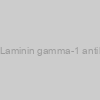 Anti-Laminin gamma-1 antibody |
|
STJ93896 |
St John's Laboratory |
200 µl |
EUR 236.4 |
|
Description: Rabbit polyclonal to Laminin gamma-1. |
 [B1]) Mouse Anti-Human TCR gamma/delta mAb (APC) [B1] |
|
E2782284 |
EnoGene |
100tests |
EUR 485 |
|
Description: Biotin-Conjugated, FITC-Conjugated , AF350 Conjugated , AF405M-Conjugated ,AF488-Conjugated, AF514-Conjugated ,AF532-Conjugated, AF555-Conjugated ,AF568-Conjugated , HRP-Conjugated, AF405S-Conjugated, AF405L-Conjugated , AF546-Conjugated, AF594-Conjugated , AF610-Conjugated, AF635-Conjugated , AF647-Conjugated , AF680-Conjugated , AF700-Conjugated , AF750-Conjugated , AF790-Conjugated , APC-Conjugated , PE-Conjugated , Cy3-Conjugated , Cy5-Conjugated , Cy5.5-Conjugated , Cy7-Conjugated Antibody |
 Rat Anti Mouse Interferon Gamma Monoclonal Antibody,RPE |
|
CABT-51781RM |
Creative Diagnostics |
100 TEST |
EUR 920.4 |
) Mouse Monoclonal anti-human CD16b (Fc gamma RIIIB) |
|
hAP-0272 |
Angio Proteomie |
100ug |
EUR 250 |
 [B1]) Mouse Anti-Human TCR gamma/delta mAb (FITC) [B1] |
|
E2782283 |
EnoGene |
100tests |
EUR 485 |
|
Description: Biotin-Conjugated, FITC-Conjugated , AF350 Conjugated , AF405M-Conjugated ,AF488-Conjugated, AF514-Conjugated ,AF532-Conjugated, AF555-Conjugated ,AF568-Conjugated , HRP-Conjugated, AF405S-Conjugated, AF405L-Conjugated , AF546-Conjugated, AF594-Conjugated , AF610-Conjugated, AF635-Conjugated , AF647-Conjugated , AF680-Conjugated , AF700-Conjugated , AF750-Conjugated , AF790-Conjugated , APC-Conjugated , PE-Conjugated , Cy3-Conjugated , Cy5-Conjugated , Cy5.5-Conjugated , Cy7-Conjugated Antibody |
 Anti-Mouse IFN gamma Receptor-1 Antibody |
|
103-M234 |
ReliaTech |
100 µg |
EUR 399 |
|
Description: The high-affinity IFN-gamma receptor complex is made up of two type I transmembrane proteins, IFN-gamma R1 (IFN-gamma R alpha) and IFN-gamma R2 (IFN-gamma R beta). Both proteins are members of the type II cytokine receptor family. IFN-gamma R1 is the ligand-binding subunit that is necessary and sufficient for IFN-gamma binding and receptor internalization. IFN-gamma R2 is required for IFN-gamma signaling, but does not bind IFN-gamma by itself. |
 Mouse anti-Gamma-aminobutyric acid receptor subunit gamma-2 antibody ELISA kit |
|
E01A19100 |
BlueGene |
96T |
EUR 700 |
|
Description: ELISA |
 Mouse anti-Gamma-aminobutyric acid receptor subunit gamma-3 antibody ELISA kit |
|
E01A19101 |
BlueGene |
96T |
EUR 700 |
|
Description: ELISA |
 Mouse Actin Gamma 1 ELISA kit |
|
E01A17778 |
BlueGene |
96T |
EUR 700 |
|
Description: ELISA |
 Mouse Actin Gamma 1 ELISA kit |
|
E03A0642-192T |
BlueGene |
192 tests |
EUR 1524 |
|
|
|
Description: A competitive ELISA for quantitative measurement of Mouse Actin Gamma 1 in samples from blood, plasma, serum, cell culture supernatant and other biological fluids. This is a high quality ELISA kit developped for optimal performance with samples from the particular species. |
 Mouse Actin Gamma 1 ELISA kit |
|
E03A0642-48 |
BlueGene |
1 plate of 48 wells |
EUR 624 |
|
|
|
Description: A competitive ELISA for quantitative measurement of Mouse Actin Gamma 1 in samples from blood, plasma, serum, cell culture supernatant and other biological fluids. This is a high quality ELISA kit developped for optimal performance with samples from the particular species. |
 Mouse Actin Gamma 1 ELISA kit |
|
E03A0642-96 |
BlueGene |
1 plate of 96 wells |
EUR 822 |
|
|
|
Description: A competitive ELISA for quantitative measurement of Mouse Actin Gamma 1 in samples from blood, plasma, serum, cell culture supernatant and other biological fluids. This is a high quality ELISA kit developped for optimal performance with samples from the particular species. |
 MIP1 gamma antibody |
|
70R-MR023 |
Fitzgerald |
50 ug |
EUR 312 |
|
|
|
Description: Affinity purified Rabbit polyclonal MIP1 gamma antibody |
 Rat Anti Mouse Interferon Gamma Monoclonal Antibody,Biotin |
|
CABT-51777RM |
Creative Diagnostics |
0.2 mg |
EUR 920.4 |
 IFN gamma,Mouse |
|
E34M052M |
EnoGene |
20 μg |
EUR 155 |
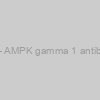 anti- AMPK gamma 1 antibody |
|
FNab00379 |
FN Test |
100µg |
EUR 606.3 |
|
|
|
Description: Antibody raised against AMPK gamma 1 |
 Mouse Anti Human Interferon Gamma Monoclonal Antibody,APC |
|
CABT-48955MH |
Creative Diagnostics |
100 TEST |
EUR 1132.8 |
 Mouse Anti Human Interferon Gamma Monoclonal Antibody,RPE |
|
CABT-48961MH |
Creative Diagnostics |
100 TEST |
EUR 920.4 |
 Antibody) Mouse Anti-Human IgG2 (Fc, gamma 2 epitope) Antibody |
|
abx023363-1mg |
Abbexa |
1 mg |
EUR 777.6 |
|
|
 Antibody) Mouse Anti-Human IgG2 (Fc, gamma 2 epitope) Antibody |
|
abx023363-400l |
Abbexa |
400 µl |
Ask for price |
 Antibody) Mouse Anti-Human IgG2 (Fc, gamma 2 epitope) Antibody |
|
abx023363-80l |
Abbexa |
80 µl |
EUR 675 |
 Anti-EF-1 gamma antibody |
|
STJ92840 |
St John's Laboratory |
200 µl |
EUR 236.4 |
|
Description: Rabbit polyclonal to EF-1 gamma. |
 Mouse Anti Human Interferon Gamma Monoclonal Antibody,FITC |
|
CABT-48959MH |
Creative Diagnostics |
0.1 mg |
EUR 852 |
 Mouse Anti Bovine Interferon Gamma Monoclonal Antibody,RPE |
|
CABT-51772MB |
Creative Diagnostics |
100 TEST |
EUR 920.4 |
 Anti-AMPK gamma 1 Antibody |
|
39217 |
SAB |
100ul |
EUR 479 |
 Anti-AMPK gamma 1 Antibody |
|
Y058032 |
ABM |
100 µl |
EUR 145 |
 ELISA Kit) Mini Samples Mouse Macrophage Inflammatory Protein 1 Gamma (MIP1g) ELISA Kit |
|
MEC073Mu-10x96wellstestplate |
Cloud-Clone |
10x96-wells test plate |
EUR 6965.86 |
|
|
|
Description: This is Double-antibody Sandwich Enzyme-linked immunosorbent assay for detection of Mini Samples Mouse Macrophage Inflammatory Protein 1 Gamma (MIP1g). |
 ELISA Kit) Mini Samples Mouse Macrophage Inflammatory Protein 1 Gamma (MIP1g) ELISA Kit |
|
MEC073Mu-1x48wellstestplate |
Cloud-Clone |
1x48-wells test plate |
EUR 678.84 |
|
|
|
Description: This is Double-antibody Sandwich Enzyme-linked immunosorbent assay for detection of Mini Samples Mouse Macrophage Inflammatory Protein 1 Gamma (MIP1g). |
 ELISA Kit) Mini Samples Mouse Macrophage Inflammatory Protein 1 Gamma (MIP1g) ELISA Kit |
|
MEC073Mu-5x96wellstestplate |
Cloud-Clone |
5x96-wells test plate |
EUR 3772.51 |
|
|
|
Description: This is Double-antibody Sandwich Enzyme-linked immunosorbent assay for detection of Mini Samples Mouse Macrophage Inflammatory Protein 1 Gamma (MIP1g). |
 ELISA Kit) Mini Samples Mouse Macrophage Inflammatory Protein 1 Gamma (MIP1g) ELISA Kit |
|
4-MEC073Mu |
Cloud-Clone |
-
Ask for price
-
Ask for price
-
Ask for price
|
- 10 plates of 96 wells
- 5 plates of 96 wells
- 1 plate of 96 wells
|
|
|
|
Description: Enzyme-linked immunosorbent assay based on the Double-antibody Sandwich method for detection of Mini Samples Mouse Macrophage Inflammatory Protein 1 Gamma (MIP1g) in samples from n/a with no significant corss-reactivity with analogues from other species. |
 ELISA Kit) Mini Samples Mouse Macrophage Inflammatory Protein 1 Gamma (MIP1g) ELISA Kit |
|
MEC073Mu-1x96wellstestplate |
Cloud-Clone |
1x96-wells test plate |
EUR 918.34 |
|
|
|
Description: This is Double-antibody Sandwich Enzyme-linked immunosorbent assay for detection of Mini Samples Mouse Macrophage Inflammatory Protein 1 Gamma (MIP1g). |
) Anti-Laminin gamma 1 (M1) |
|
YF-MA13956 |
Abfrontier |
100 ug |
EUR 435.6 |
|
Description: Mouse monoclonal to Laminin gamma 1 |
 Polyclonal Antibody (Mouse)) Laminin Gamma 1 (LAMC1) Polyclonal Antibody (Mouse) |
|
4-PAC082Mu01 |
Cloud-Clone |
-
Ask for price
-
Ask for price
-
Ask for price
-
Ask for price
-
Ask for price
|
- 100ul
- 10ml
- 1ml
- 200ul
- 20ul
|
|
|
|
Description: A Rabbit polyclonal antibody against Mouse Laminin Gamma 1 (LAMC1) |
Adverse occasions: two small studies reported on mortality; one in every of these additionally reported on severe and different adversarial occasions, however pattern sizes had been too small for small variations to be detected. Therefore, low-quality proof means that the intervention might have little to no impact on mortality and different adversarial occasions. Health-related high quality of life: solely very low-quality proof from one examine is offered. We are unsure whether or not the intervention improves disease-specific high quality of lifetime of sufferers with bronchial asthma. Health-related outcomes: low-quality proof from eight studies means that the intervention might have little to no impact on bronchial asthma management, glycosylated haemoglobin (HbA1c) ranges, blood strain, low-density lipoprotein or whole levels of cholesterol, physique mass index or weight, or 10-year Framingham threat scores.
Low-quality proof from one examine means that the composite scores of threat components for diabetes mellitus might enhance barely with the intervention, however there’s uncertainty about results on ophthalmic medicines or intraocular strain. Psychosocial well being outcomes: no examine investigated psychosocial well being outcomes in a greater than anecdotal means. Health useful resource consumption: low-quality proof for grownup sufferers in three studies means that there could also be little to no impact of the intervention on completely different measures of well beingcare use. Patient-provider communication: very low-quality proof is offered from a single small examine, and we’re unsure whether or not the intervention improves communication measures, such because the variety of messages despatched.
